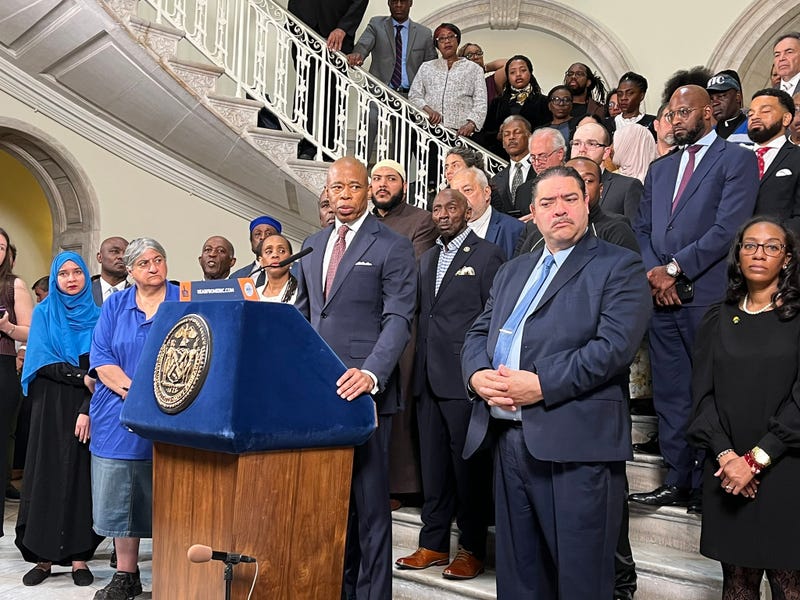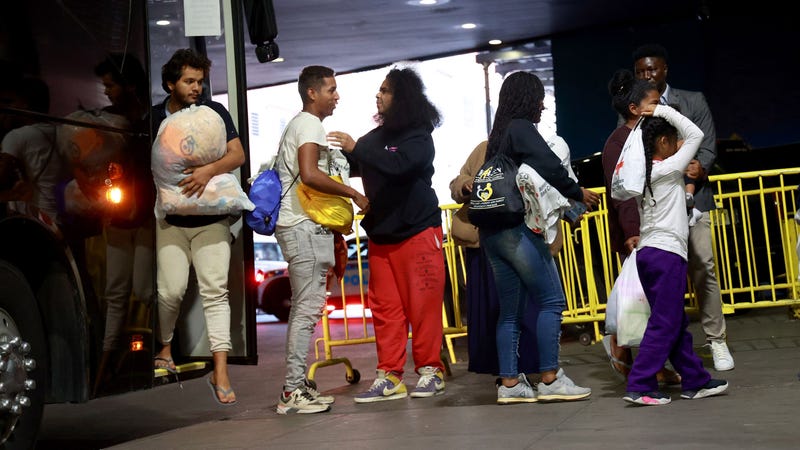
NEW YORK (1010 WINS/WCBS 880) -- Mayor Eric Adams on Monday floated the idea of "private residences" in New York hosting migrants as the city looks for new places to house thousands of asylum seekers.
Plans are still being discussed, but the mayor said he's looking into having New Yorkers with extra space house migrants, with the city subsidizing landlords and homeowners.
Many details would need to be worked out, including how much the city would subsidize and how things like utilities would be taken care of. Adams said it would all be done by the book.
"We're trying to navigate all the rules of how to get it done," the mayor said. "There are many layers to how someone can use their space. We want to make sure that we follow all the rules and those rules that need to be changed within my power, we will push to do so. If there's rules that need to be changed on the state level, we're going to reach out to our state colleagues to do so."
The city could also look at legalizing and conforming basement apartments as part of the strategy.
The idea came up as Adams announced at City Hall Monday that up to 50 houses of worship or faith-based spaces will be subsidized to each offer overnight shelter for up to 19 single adult men.

Nearly 1,000 asylum seekers will be housed as part of the partnership between the city and New York Disaster Interfaith Services, with the potential for further expansion.
"This will allow us to help our faith communities shelter those in need of housing using houses of worship throughout the five boroughs," the mayor said.
At a press conference attended by dozens of faith leaders, Adams said it's cheaper for faith-based institutions to house migrants—about $125 a day—than to have them stay at hotels. It will also help integrate them into various communities, he said.
The city is currently caring for more than 46,000 asylum seekers, and it has supported over 72,000 since the migrants started arriving in the five boroughs last spring, mostly from the U.S. southern border.
Adams said the city has already spent more than $1.2 billion on the migrant crisis this fiscal year and is projected to spend more than $4.3 billion by the end of June 2024.
"Let's be clear, the buses are still coming," Adams said. "So even when we find new spaces, we're getting new people to put in those spaces."



